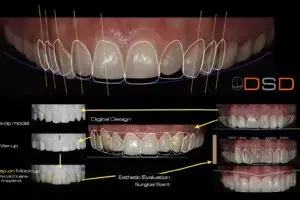Maintaining excellent oral hygiene is essential for a healthy smile and overall well-being. While brushing and flossing are fundamental practices, many people overlook another crucial tool: the tongue cleaner. Incorporating a tongue cleaner into your daily routine can significantly enhance your oral health by removing bacteria, food particles, and dead cells that accumulate on the tongue. This article explores the benefits of using tongue cleaners, the different types available, and tips for effective tongue cleaning.
Why Clean Your Tongue?
The tongue is a hotspot for bacteria, which can lead to bad breath, plaque buildup, and other oral health issues. Here are the primary reasons why cleaning your tongue is important:
1. Reduces Bad Breath
Bacteria on the tongue produce volatile sulfur compounds (VSCs), which are responsible for unpleasant odors. Regularly cleaning your tongue helps eliminate these bacteria, resulting in fresher breath.
2. Prevents Plaque Buildup
Plaque isn’t just confined to your teeth; it can also accumulate on your tongue. Removing plaque from the tongue helps prevent the formation of cavities and gum disease, contributing to overall dental health.
3. Enhances Taste Sensation
A coating on the tongue can dull your taste buds, reducing your ability to fully enjoy the flavors of your food. By cleaning your tongue, you can enhance your taste sensation and enjoy a more flavorful eating experience.
4. Promotes Overall Oral Health
Removing debris from the tongue supports comprehensive oral hygiene. It reduces the risk of oral infections and supports healthier gums and teeth.

Types of Tongue Cleaners
Tongue cleaners come in various forms, each designed to effectively clean the surface of the tongue. Understanding the different types can help you choose the best tool for your needs.
1. Plastic Tongue Scrapers
Plastic tongue scrapers are flexible and easy to use. They typically have a curved shape that fits the contours of the tongue, allowing for effective scraping without causing discomfort.
2. Metal Tongue Scrapers
Metal tongue scrapers, often made of stainless steel, are durable and highly effective at removing stubborn debris. They can be more precise than plastic scrapers and are long-lasting with proper care.
3. Tongue Brushes
Tongue brushes resemble toothbrushes but have softer bristles designed specifically for cleaning the tongue. They combine brushing and scraping motions to remove debris and bacteria.
Example: A soft-bristled tongue brush that gently cleans while being easy to maneuver.
4. Natural Alternatives
For those who prefer a more natural approach, alternatives like using a clean spoon or a dedicated toothbrush can be effective. While not as specialised, these methods can still help maintain a clean tongue.
How to Use a Tongue Cleaner Effectively
Using a tongue cleaner correctly is key to maximising its benefits. Here’s a step-by-step guide to ensure you’re cleaning your tongue effectively:
1. Choose the Right Tool
Select a tongue cleaner that feels comfortable and is easy for you to use. Whether you prefer a scraper, brush, or natural alternative, ensure it suits your personal preferences and oral hygiene needs.
2. Clean Your Tongue First
Begin by brushing and flossing your teeth to remove any surface debris and plaque. Cleaning your tongue afterward ensures that you’re removing bacteria that brushing alone might miss.
3. Proper Technique
- Position the Scraper or Brush: Place the tongue cleaner at the back of your tongue, being careful not to gag.
- Gently Scrape or Brush: Move the scraper or brush forward toward the tip of your tongue, applying gentle pressure to remove debris.
- Rinse Thoroughly: After each pass, rinse the scraper or brush to remove the collected debris. Repeat the process until your tongue feels clean.
4. Frequency
Clean your tongue daily as part of your morning and evening oral hygiene routine. Consistency is crucial for maintaining optimal oral health.

Potential Benefits Beyond Fresh Breath
Beyond combating bad breath, cleaning your tongue offers additional benefits that contribute to overall health:
1. Detection of Health Issues
Changes in the appearance of your tongue can be indicators of underlying health conditions. A healthy tongue is usually pink with a slight texture. Redness, swelling, or unusual coatings can signal issues like vitamin deficiencies, infections, or other health concerns. Regular tongue cleaning can help you notice these changes early, allowing you to seek medical advice promptly.
2. Improved Confidence
Having a clean mouth can boost your confidence in social and professional interactions. Knowing that your breath is fresh and your tongue is clean can enhance your self-esteem and overall quality of life.
Conclusion
Incorporating a tongue cleaner into your daily oral hygiene routine is a simple yet effective way to enhance your oral health. By reducing bad breath, preventing plaque buildup, and improving taste sensation, tongue cleaning supports a comprehensive approach to maintaining a healthy smile. Whether you choose a plastic scraper, metal scraper, tongue brush, or a natural alternative, the key is consistency and proper technique.


